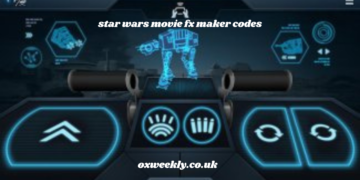Introduction
For developers looking to speed up the development and deployment of Wowza Streaming Engine apps, the Wowza Gradle Plugin is a helpful tool. Building, packaging, and deploying Wowza modules are just a few of the tasks that users may automate by including this plugin into a Gradle-based build system. This post provides a thorough analysis of the Wowza Gradle Plugin, including setup, installation, key features, best practices, and troubleshooting.
Understanding the Wowza Gradle Plugin
Managing Wowza Streaming Engine projects is made easier with the Wowza Gradle Plugin. Wowza apps have historically required complicated setups and manual compilation in order to be set up and deployed. Developers may effectively specify build jobs with this plugin, guaranteeing a more automated and structured workflow.
Gradle, a popular build automation tool, enables modular and customizable builds, making it a preferred choice for modern development environments. The Wowza Gradle Plugin extends Gradle’s capabilities specifically for Wowza Streaming Engine development, enabling seamless integration with existing projects.
Installing and Setting Up the Wowza Gradle Plugin
Prerequisites
Before installing the Wowza Gradle Plugin, ensure that your system meets the following requirements:
- Java Development Kit (JDK) installed
- Gradle installed and configured
- Wowza Streaming Engine installed
- Internet access for dependency resolution
Adding the Plugin to Your Project
To integrate the Wowza Gradle Plugin, update your build.gradle file as follows:
plugins {
id 'com.wowza.gradle.plugin' version '1.0.0'
}After adding the plugin, synchronize your project so Gradle can fetch the necessary dependencies.
Configuring the Plugin
Configuration of the Wowza Gradle Plugin is crucial for optimizing the build and deployment process. Below is a sample configuration:
wowza {
serverHome = '/path/to/wowza'
moduleName = 'MyWowzaModule'
buildDir = 'build/libs'
deployDir = '/path/to/wowza/modules'
}This setup ensures that the compiled Wowza module is correctly placed within the Wowza Streaming Engine directory, making deployment seamless.
Key Features of the Wowza Gradle Plugin
Automated Compilation and Deployment
One of the primary benefits of using the Wowza Gradle Plugin is its ability to automate the compilation and deployment of Wowza modules. With a single command, developers can build and deploy their projects without manual intervention.
Dependency Management
Gradle’s dependency management system allows developers to define external libraries needed for their Wowza projects. This eliminates the need for manually handling JAR files.
Custom Task Creation
The plugin enables the creation of custom tasks tailored to specific development needs. Developers can define tasks for testing, packaging, and logging, among other functionalities.
Integration with CI/CD Pipelines
For teams practicing continuous integration and continuous deployment (CI/CD), the Wowza Gradle Plugin integrates seamlessly with tools like Jenkins, GitHub Actions, and GitLab CI. This ensures that Wowza applications are built and deployed automatically as part of the development workflow.
Best Practices for Using the Wowza Gradle Plugin
Organizing Project Structure
Maintaining a clean project structure is essential for efficient development. Consider the following best practices:
- Keep module source code in a dedicated
srcdirectory - Separate configuration files from the main application logic
- Store dependencies in the
libsfolder for easy management
Leveraging Gradle Caching
Gradle’s build caching mechanism speeds up compilation by reusing outputs from previous builds. Enable caching by adding:
gradle.startParameter.isBuildCacheEnabled = trueThis helps reduce build times, especially for large projects.
Automating Tests
Incorporating automated testing in Wowza module development ensures stability and reliability. Define test tasks in Gradle using:
task testWowza(type: Test) {
useJUnitPlatform()
}This allows developers to run unit tests before deployment, catching potential issues early.
Troubleshooting Common Issues
Build Failures
If you encounter build failures, verify that:
- The correct Java version is installed
- Gradle dependencies are properly resolved
- The Wowza Streaming Engine directory is correctly specified
Deployment Errors
If the module does not deploy correctly, check the Wowza logs for errors. Common issues include incorrect file permissions or missing dependencies.
Performance Bottlenecks
Optimize performance by enabling Gradle’s parallel execution:
gradle.startParameter.parallelProjectExecutionEnabled = trueThis ensures that tasks run concurrently, reducing overall build time.
Conclusion
The Wowza Gradle Plugin is among the most helpful resources available to developers utilizing the Wowza Streaming Engine. It automates the build and deployment process, simplifies dependency management, and increases overall development efficiency. Developers can maximize the functionality of this plugin for their Wowza projects by following the best practices and troubleshooting techniques in this guide.
































